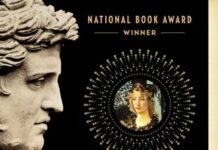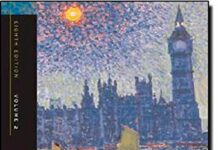
Ebook Info
- Published: 2010
- Number of pages: 163 pages
- Format: PDF
- File Size: 4.08 MB
- Authors: Stephen Greenblatt
Description
Shakespeare lived in a world of absolutes—of claims for the absolute authority of scripture, monarch, and God, and the authority of fathers over wives and children, the old over the young, and the gentle over the baseborn. With the elegance and verve for which he is well known, Stephen Greenblatt, author of the best-selling Will in the World, shows that Shakespeare was strikingly averse to such absolutes and constantly probed the possibility of freedom from them. Again and again, Shakespeare confounds the designs and pretensions of kings, generals, and churchmen. His aversion to absolutes even leads him to probe the exalted and seemingly limitless passions of his lovers.Greenblatt explores this rich theme by addressing four of Shakespeare’s preoccupations across all the genres in which he worked. He first considers the idea of beauty in Shakespeare’s works, specifically his challenge to the cult of featureless perfection and his interest in distinguishing marks. He then turns to Shakespeare’s interest in murderous hatred, most famously embodied in Shylock but seen also in the character Bernardine in Measure for Measure. Next Greenblatt considers the idea of Shakespearean authority—that is, Shakespeare’s deep sense of the ethical ambiguity of power, including his own. Ultimately, Greenblatt takes up Shakespearean autonomy, in particular the freedom of artists, guided by distinctive forms of perception, to live by their own laws and to claim that their creations are singularly unconstrained.A book that could only have been written by Stephen Greenblatt, Shakespeare’s Freedom is a wholly original and eloquent meditation by the most acclaimed and influential Shakespearean of our time.
User’s Reviews
Reviews from Amazon users which were colected at the time this book was published on the website:
⭐Dr. Greenblatt should be declared a national treasure. He loves Shakespeare as I do, and so I read everything he writes. In this book, he drags out every humane and little known activity which the Bard ever did, Greenblatt even tells us that the Bard ‘s last visit to a pub was enjoyed with his friends. Ben Jonson and Michael Drayton, (whose great great great great great etc. grandson lives on Long Boat Key and goes by a first name of Drayton).Musing that the poet Shakespeare and playwright Will started out in life Catholic but had to slip away from home to escape persecution as a Catholic into wicked old London, Greenblatt does not say but suggests that the writer probably hid in plain sight by playing a a youth the roles of women. Greenblatt intimates that this experience adds a dimension of truth to the women of whom Shakespeare writes. Greenblatt points out without saying it that the Denmark of Hamlet must have shown in the play taken place before Erasmus was born, or at least before Henry the VIII beheaded Anne Bolelyn an thus ws excommunicated and before Henry 8 assumed the role of Head of the Church of England.Also, if Denmark on stage was supposed to be a stand-in for England, and if Hamlet a stand-in for the helpless young Elizabeth, the “Get thee to a nunnery ” lines refer not only to interpreting the girl as a doomed lover, but also as a doomed Catholic girl living in a castle writhing with sub rosa tension between Catholics (who will lose their footing), and as yet undeclared Protestants, to say nothing of the troubles Denmark had with the extant Hanseatic League which treated Denmark like a poor sister. There already was political unrest in Denmark for real. Reread the lines about the nunnery and you thus may find a third meaning not just two.The first is uttered when Hamlet has not yet decided to do anything except to take the first step towards finding out who killed his father. He advises Ophelia to” Get thee to a nunnery” –perhaps at this point, not to save Ophelia from death, nor because the Prince as yet distrusts her, but because all hell may break n loose in the castle and Hamlet will be the one to cause i. Therefore the first ‘nunnery’ could mean ‘Look lovely girl,Go there for political asylum and I will come and get you out when this is all over and justice has been done. BUT IN THE MEANTIME GET OUT OF THIS PALACE!”The other two such lines with the same words might then mean, (the second time he says it, he precedes it with his question, ‘Are you honest ?”–” his subtext meaning, baby,’If you say yes, I don’t believe you anymore, so ‘Get thee to a nunnery,’ (a bordello), because now you are lying.”While the third, when Hamlet is convinced Ophelia is still a baby,he realizes he has outstripped her, he had passed her in intellectual seven league boots,he dooms her with the third utterance: it is the killer, “get thee to a nunnery, I loved you not, I gave you aught,you are a daddy’s girl,you are not for me, get out of my sight.” He kills her hopes.In the meantime, Queen Eliz I is watching this play, either at the Globe or on her own stage at the Palace. The mention of nunneries as a destination for Ophelia now prove to Queen Elizabeth that Shakespeare has not broken her new law, stating that royalty (her family) is not to be pictured on the stag. Also, under Henry VIII her father, most Catholic nunneries were plundered and destroyed so the Queen may have been thinking something like this:” Well, if Shakespeare meant this to be a fake England on Stage, my audience would laugh for my father Henry VIII has plundered and burned all the major monasteries, biggest churches and major convents in England. This storybook Hamlet cannot send his storybook Ophelia to a nunnery for any reason if located in England: Father made sure that the nunneries are no longer there. The play does not break the new law, the characters cannot represent my English royal family,living or dead,because English nunneries do not exist any longer; one can only assume that Prince Hamlet is at home in DENMARK. With these nunnery lines, Shakespeare has thrown ice all over steaming hot potatoes,the ice settles and right in front of the Queen, he adds a little cream and he has has concocted vichyssoise. The play continues to exist through fire, through brimstone. …and Prof Greenblatt continues to write.Again and again, the reader’s consideration of what state this “Denmark’ is IN, in real life, makes one understand why Shakespeare chose Denmark for his masterpiece, Yes it is the same size country, yes earlier their was a Dane on the throne of England for a while, yes, the Magna Carta and Wm the Conqueror just before 1066 threw out the Danes, but yes,there was also that new Elizabethan law making it illegal to portray any living royalty on the London stage, (nobody in her family), and that included when the players played in the Palace which they did 13 times, so to keep the theatre running, Shakespeare sets the play in Denmark, but he “steals” applicable attributes of all the English Kings, Queens and courtiers of the previous 150 years to distribute as needed among the characters in Hamlet the play and then gives these pastiches of people the life-like dialogue that the play, their world, becomes a well-observed, drenched in logic and observation and artistry tragedy. It is matched only by Long Day’s Journey into Night, Streetcar named Desire and a few pre-World War II dramas roiling off the European continent …None of which come anywhere close to the picture in verse of seeing the re-presentation of a handsome, brilliant, young and good man’ s life sliding down a severe and but self-chosen path to self-destruction in order to avoid civil war in Denmark and to try to right the way so clearly that the next heir may be crowned without military intervention. Hamlet takes what he perceives to be his only chance to resurrect his country. We slide down with the tragedy of Hamlet, still safe in our seats. I do thank you for making it possible for me to air my thoughts on this masterful book by Greenblatt and thus, in turn, by Shakespeare. Thank you again. GK
⭐I first became a fan of Professor Greenblatt when I read his wonderful look at the impact of changing religious beliefs on Shakespeare, Hamlet in Purgatory. This was followed by his equally wonderful biography of Shakespeare, Will in the World. Now we have a slim volume that takes a look at Shakespeare’s breaking of conventions in his work. Despite its brevity, however, it is a piercing look at some fascinating topics.Take, for example, his analysis of beauty in Shakespeare’s works. Blemishes, wrinkles, birthmarks and scars were considered to mar beauty is Shakespeare’s time, and the poetry and drama of the time often indicated that. And these disfigurements often indicated deeper flaws. Shakespeare used these conventions on occasion himself. On the other hand, he often noted these conventions, even as he turned them on their head. (“My mistress’ eyes are nothing like the sun… The sonnets glorify the “dark lady”, Henry V encourages his soldiers to show their scars, and beautiful Innogen’s mole all show Shakespeare to take a wider view.Greenblatt also has a great discussion of the necessities of hatred and silence in his fresh analysis of Shylock and Iago. This is followed by, if anything, an even cleverer discussion of absolute authority which leads him to the idea of autonomy. The powerful in Shakespeare often claimed to be bound by legalisms and yet, would throw away the law by fiat, when it served. Thus creating an ethical dilemma for those that wield power that is difficult to resolve. This is linked to an author’s ability to create his own world, and the dangers it entails.All in all, this is a book filled with ideas, which is what I look for most in books about Shakespeare. Shakespeare runs so wide and deep that the is room for endless discussion and debate. Professor Greenblatt has added another series of sound arguments to the field.
⭐He is a scholarly writer but not dry. He brings the old historical stuff to life. I long ago graduated from college and not with a Lit degree but I have always loved Shakespeare and wanted to explore his life and this book covers his milieu and other stuff. I like it.
⭐Greenblatt is a learned Scholar and a true Shakespeare enthusiast, and his writing reflects these facts. This is a slim volume containing six or seven essays about Shakespeare, and how he functioned in the complex, dangerous world around him. As always, the author does an excellent job of presenting Shakespeare’s life in the context of his times. So little is known about Shakespeare, the man, that Stephen G has found really fertile ground for scholarly speculation. All his books not only shed light upon the work of Shakespeare but they also give the reader a sense of who the man might have been.
⭐For me this was a valuable addition to my collection of books about Shakespeare and his works.
⭐Great addition to my library
⭐I read everything I can find on Shakespeare, and I found this to be the most intellectually dishonest book I have ever read on the subject. It’s brings little new or helpful insight to the subject, while “mushing” Shakespeare into Greenblatt’s construct for presenting a lot of old information in a new garb. Perhaps most outrageous is his attempt to make Shakespeare “free” in his time, when the greatness of Shakespeare is his continual attempt to understand his time, and his humanity, himself and the world around him in terms of the limits place on us by society, religion and our human natures. He was not “free” anymore than Marlowe was, he was a creative genius grappling with our humanness better than any other writer ever has, with better tools than any other writer has every had. Five chapters of pedantry with arguable holes in the logic on every page. What poppycock.
⭐In this volume Stephen Greenblatt (The Swerve, Will in the World) explores Shakespeare’s freedom in regards to individuality. Drawing on pertinent cultural ideas in Elizabethan England, Greenblatt looks into Shakespeare’s mind and attitudes which is no mean feat considering how little information is available. All conjecture is clearly labelled though with the evidence laying in Shakespeare’s works themselves. Elizabethan attitudes towards beauty marks and moles provides an interesting departure point to truly insightful revelations that look much deeper. It may not be the longest book but it’s value extends much further.
⭐Greenblatt — ‘Shakespeare’s Freedom’Stephen Greenblatt’s ‘Shakespeare’s Freedom’ explores life in a tyrannical England of the 16th Century with ‘absolutes’, that is, government directives, comprising authority, under god, over scripture, controlling all or most writing and/or artistic expression. The crown thought itself divinely inspired with a hierarchical structure from the top down – monarch, aristocrat, writer-sculptor-artist, merchant, commoner – with the three lowest groups on the pole at the whim of censors, and writers continually preoccupied with maintaining output compatible with no perceived threat to the crown. As Greenblatt convincingly points out in this published lecture series is Shakespeare’s ability as a wordsmith to introduce new words to literature, but to continually rail against absolutist conventions, consistently pushing against pretentious authorities seeking ways to espouse freedom from them. This anti-absolutist theme is compounded by Greenblatt’s exposition of four of Shakespeare’s engrossed foci – imperfect ‘featureless’ beauty (near obsession with bodily marks), evil hatred (think Shylock), absolute authority, and freedom of expression — all implicit in the genres of his work, tragedy, history and comedy. Carrying on, Greenblatt ends with a keen focus on Shakespeare’s bent to advance artistic freedom, done carefully, often with an excursion to earlier times before the reign of Queen Elizabeth — think Lear, Coriolanus, Julius Cesar, Antony and Cleopatra. Closer to his time frame, he had to doubly refocus with such plays as Richard III, various Henry’s IV-VIII etc., lest he disturb the censors from their slumber. This introspective volume, delving deeply into the mind of perhaps the greatest playwright in English history, needs to be read recalling all four major pretensions of Shakespeare and their links to his various plays and to different time frames. For those of us with minimum knowledge of Shakespeare and his times, a second read brings his preoccupations with the evils of unconstrained absolute power into sharper perspective.W.C. Mahaney, author of: ‘Ice on the Equator – Quaternary Geology of Mount Kenya, East Africa’, ‘Atlas of Sand Grain Surface Textures and Applications’, and ‘Hannibal’s Odyssey: The Environmental Background to the Alpine Invasion of Italia”.
Keywords
Free Download Shakespeare’s Freedom (The Rice University Campbell Lectures) in PDF format
Shakespeare’s Freedom (The Rice University Campbell Lectures) PDF Free Download
Download Shakespeare’s Freedom (The Rice University Campbell Lectures) 2010 PDF Free
Shakespeare’s Freedom (The Rice University Campbell Lectures) 2010 PDF Free Download
Download Shakespeare’s Freedom (The Rice University Campbell Lectures) PDF
Free Download Ebook Shakespeare’s Freedom (The Rice University Campbell Lectures)



